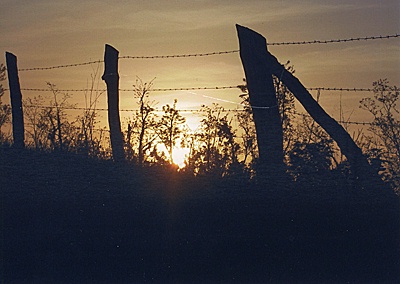All Nonfiction
- Bullying
- Books
- Academic
- Author Interviews
- Celebrity interviews
- College Articles
- College Essays
- Educator of the Year
- Heroes
- Interviews
- Memoir
- Personal Experience
- Sports
- Travel & Culture
All Opinions
- Bullying
- Current Events / Politics
- Discrimination
- Drugs / Alcohol / Smoking
- Entertainment / Celebrities
- Environment
- Love / Relationships
- Movies / Music / TV
- Pop Culture / Trends
- School / College
- Social Issues / Civics
- Spirituality / Religion
- Sports / Hobbies
All Hot Topics
- Bullying
- Community Service
- Environment
- Health
- Letters to the Editor
- Pride & Prejudice
- What Matters
- Back
Summer Guide
- Program Links
- Program Reviews
- Back
College Guide
- College Links
- College Reviews
- College Essays
- College Articles
- Back
What I Wouldn't Like to Tell You
Dear Father,
As much as I would like to tell you I am doing fine, I cannot. That is why this letter is only addressed to you, Father. What I am about to say is not for women like Mother and Natalya. Please tell them that I am alright and nothing is wrong. I don’t want them to worry.
The state on the front is getting worst. The Germans are pelting us with a constant rain of bombs. The trench is hard to walk in, for we must wade through half a meter of mud to get anywhere. Every so often, a comrade will step on a drowned rat, releasing a swarm of maggots. At least the flies are enjoying the war.
I think you would be ashamed to see me. All of us here, I remember when we first were drafted. We were shining proud soldiers, remember?. We were clean and eager to fight. Now, we’ve all got lice in our thin hair and are so jumpy we never let go of our rifles. We smell like the decay in the mud, and the thing is, I don’t notice it anymore, or ever mind. Our rations are devoured the second we get them because we’re afraid that we won’t live to finish eating, that invisible gas will creep in unseen and kill us all.
Though I’ve heard it’s no better back home, with the Communists establishing. An officer told me that his father said Russia might withdraw from the war. I hope so. Then I can come home and the Germans will leave us alone. You’ve no idea how badly I want to leave this war. Leave the trench and the bombings and my comrades’ faces. I want to come home. It sounds like the perfect life, the government taking care of everything. I won’t have to worry about all these war concerns when I come home, not food, not water, not housing. It’s like the simple life of a child again, as far from war as life can get.
You asked about Alexie. I found him sitting alone in the dugout yesterday, crying. When I asked what was wrong, other than the danger always hanging above our heads, he looked up at me with bloodshot eyes. His hand was on his unlaced boot, a futile attempt to take it off.
“I can’t,” he croaked.
There was nothing I could say. A doctor couldn’t help trench foot, just amputate. Alexie would rather die over becoming unable to walk, useless to himself, his family, and his nation. He stood up, bawling subsided, and stumbled toward the trench wall. He turned, met my eyes with his red and puffy ones, and said, “It’s been good, Ivan.”
I couldn’t breathe then, like I had swallowed a bayonet I could see death lingering by his side, floating nearby, waiting for the right time to seize him. Alexie put on his gas mask on to hide his tears and loaded his rifle. More to himself, I heard him say, “I’m taking some of them with me.”
A shadow lifted Alexie as he climbed through the barbed wire into no-man’s-land. He screamed like a madman, shooting at the Germans as the slug shells rained down on me. I saw one enemy go down, but another filled his place and squeezed the trigger of a machine gun. The bullets slipped through Alexie’s soft body, spraying me with his blood, flesh, and uniform. I silently watched as my last living friend was gunned down.
It rained soon after, showering more dirt-turned-mud on us. The sandbags above me were stained scarlet from what was left of desperate Alexie. Two soldiers came and dragged his body away. As they slipped the net of gore under the wire, Alexie’s helmet fell off. It disappeared into the mud, as if the memory of him never existed, which I guess it isn’t. He was just another life lost.
I write you this because when I come home, I won’t know Alexie. I won’t think of him, or talk of him, of my friend who wanted to die at war rather than go home a cripple. I won’t remember him or Viktor or Yakov or Nikolay or all the others whose names I’ve already forgotten. I won’t remember this trench where I’ve wasted what feels like most of my life, these sights, these sounds. I can’t live with these memories. I must forget. Forget the war or live forever with the faces of the ones I’ve killed, the ones I’ve seen killed, flashing before me. Father, I won’t even remember this letter after I’ve penned it down.
Your son,
Ivan

Similar Articles
JOIN THE DISCUSSION
This article has 0 comments.
